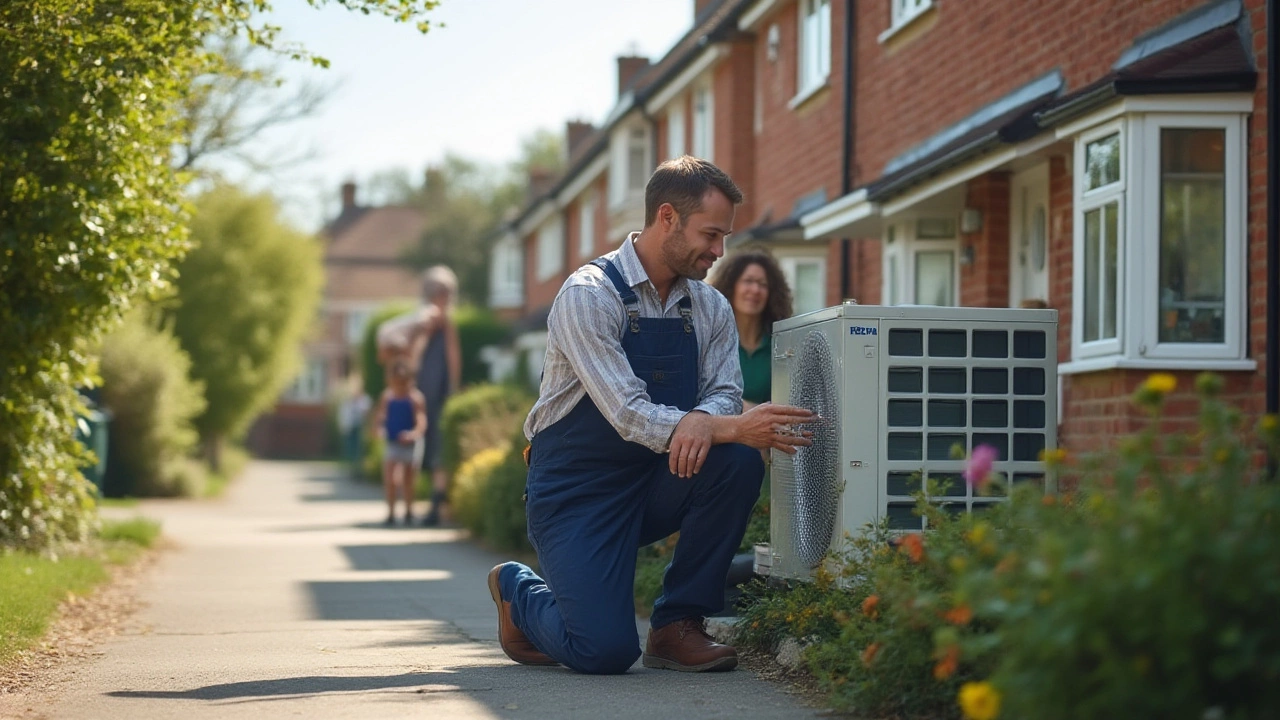Energy Efficient Heat Pumps: Cut Bills and Stay Cozy in Glastonbury
Ever felt the sting of a high heating bill while the house is still chilly? A heat pump might be the fix you need. It works like a refrigerator in reverse – pulling heat from the outside air or ground and moving it inside. Even when it’s cold outside, there’s still enough warmth to capture, so you get heat without burning a lot of fuel.
Because a heat pump moves heat instead of creating it, it can deliver two to three units of heat for every unit of electricity it uses. That efficiency translates straight into lower energy costs and a smaller carbon footprint. In a place like Glastonbury, where winters can be damp and summers mild, a well‑chosen heat pump fits the climate perfectly.
Why heat pumps beat traditional boilers
Traditional gas or oil boilers heat water by burning fuel, which wastes a lot of energy as heat escapes through the flue. A heat pump, on the other hand, keeps most of the energy inside the system. You’ll notice three big benefits: first, your electricity bill drops because the pump uses less power; second, you get consistent warmth without the noisy cycling of a boiler; third, you reduce greenhouse gas emissions, helping the planet and often qualifying for local incentives.
Maintenance is another plus. Heat pumps have fewer moving parts than a boiler, so there’s less that can go wrong. A simple annual check‑up – cleaning the outdoor fan, inspecting refrigerant levels, and testing controls – keeps the system humming. That’s where a local expert like Glastonbury Appliance Repair Services can save you time and money.
Choosing the right system and getting it installed
Not all heat pumps are created equal. Air‑source units are the most common and easiest to install, but ground‑source (geothermal) systems can be even more efficient if you have space for a loop field. Think about your home size, insulation quality, and budget. A 3‑5 kW air‑source pump usually handles a typical three‑bedroom house in Glastonbury.
Installation matters as much as the unit itself. Proper sizing ensures the pump can meet peak demand without overworking. Position the outdoor unit where it gets free airflow and isn’t blocked by shrubs or fences. Make sure the indoor distribution – whether it’s under‑floor piping or ductwork – is sealed tight to avoid heat loss.
If you’re not comfortable with the electrical work, let a certified installer handle it. In Glastonbury, local technicians know the building codes and can coordinate with any required planning permissions. After the job, ask for a quick demo: they should show you how to set the thermostat, check the mode, and run a basic self‑test.
Regular upkeep keeps the efficiency high. Schedule a yearly service with Glastonbury Appliance Repair Services – they’ll clean the coils, check refrigerant pressure, and tighten any loose connections. A small service fee now prevents costly breakdowns later and keeps your warranty valid.
Ready to switch? Start by comparing a few reputable brands, ask for quotes that include both unit and installation, and request a free home assessment. With a heat pump, you’ll enjoy steady warmth, lower bills, and a greener home without sacrificing comfort. Let the experts in Glastonbury guide you through the process and keep your system running smoothly for years to come.

Most Reliable Heat Pumps in 2025: Top Brands, Reviews, and Facts
Get the real scoop on the most reliable heat pump brands. Find dependable options, tips for choosing, and maintenance facts—without drowning in jargon.